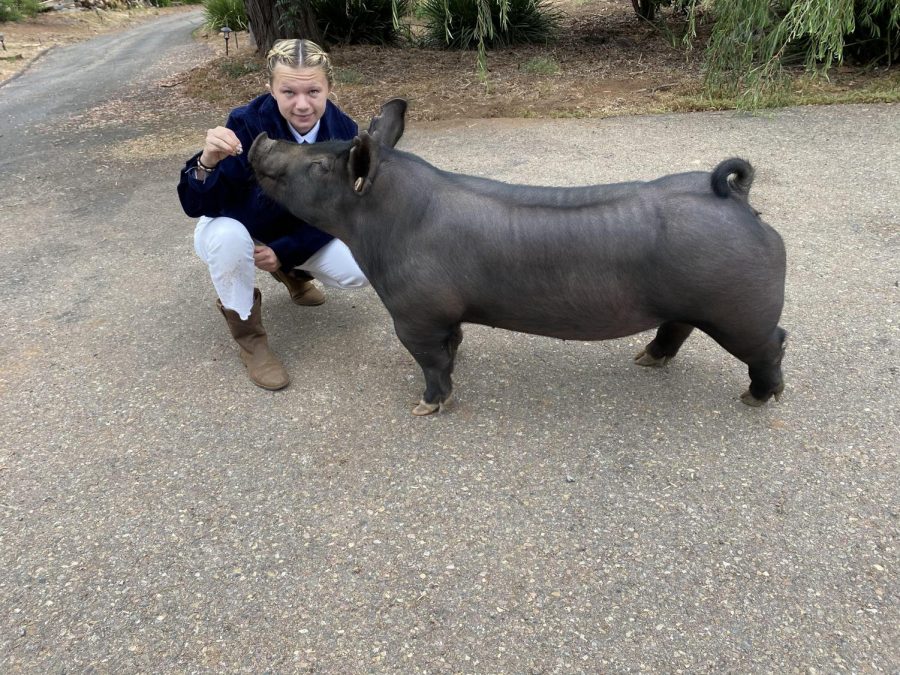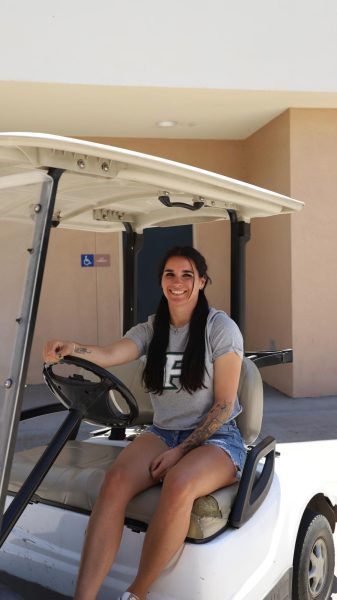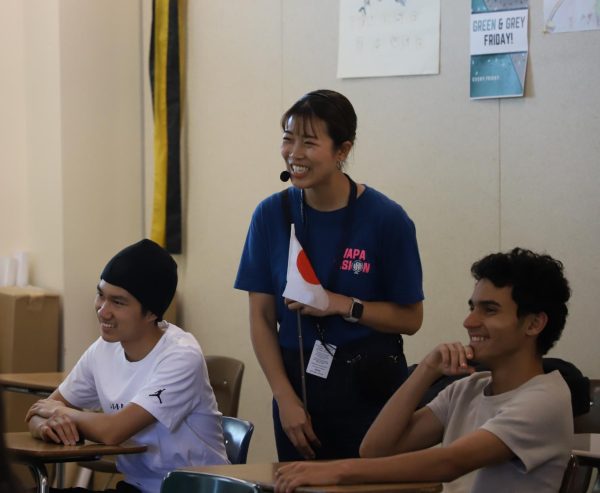Poway FFA Chapter Discusses Livestock Raising Changes
How Our FFA Chapter Will Keep Livestock During the Pandemic.
Most students are well acquainted with the Future Farmers Of America (FFA) chapter in Poway High School for their hands-on approach to science and agriculture; but when everyone shifted to online learning, it restricted the learning experience the agriculture department and FFA provides.
The FFA chapter has begun supervising over 30 animal projects, along with continued support for several projects since September. Raising livestock for the Poway FFA chapter will be different than before the pandemic.
A big part of the livestock process is showing and selling animals at the County Fair. Unfortunately, the fair experience has changed quite a bit.
“The fair this year will supposedly be a cross between virtual and in-person, which means that the judging decisions will not be completely accurate and organized. The online format of the fair will also make auction more difficult, and more likely to attract less buyers”, the FFA Chapter Vice President, junior Callie Boles, said.
Raising the animals has changed as well; but the students still get all the hands-on experience they expect from their projects.
“COVID-19 procedures were established that align with the state, district, and school guidelines… All students are still encouraged to find a buyer prior to auction… Students leaders empathize, collaborate with colleagues, understand the importance of animal care, welfare, nutrition, exercise, and strive to truly bond with their livestock projects,” Shelby Bueno, Agriculture department teacher and FFA Chapter Advisor said.
“There are a lot more hardships we have to overcome in comparison to pre-pandemic times. In terms of daily exercise routines and feeding schedules, it is more or less the same. The one thing that has changed is that we are no longer able to collaborate with the other animal raisers to the same extent due to social distancing rules,” Boles said.
FFA students make many preparations for their animals, whether it be for the restrictions of COVID-19, or even just financial needs. Luckily, the FFA chapter seems to be supporting students’ needs, as animal costs and sale prices vary.
“The market prices [for livestock] are rising, but Poway FFA is offering financial advice and support to students that will keep their break even price at the lowest possible cost,” Bueno said.
The importance of lowering break even price is so that when an animal is sold, the student is more likely to make a profit off their animal.
Bueno continues, “Market prices are rising and that causes feed prices to rise, but luckily we have extremely motivated and intelligent students in our program…This year, students called feed stores to order bags of feed… Lamb and goat feed was up almost eight dollars per bag. Our reporter [FFA officer], Kaitlyn Miller, asked me if she could send some feed tags my way for a comparison to get cheaper feed… During her search she actually found the manufacturer was in Orange County for a cheaper price than we got before.”
It’s very good to see that the FFA chapter is able to continue teaching students in the unique way that students have come to expect, despite the difficulties presented by the pandemic.







